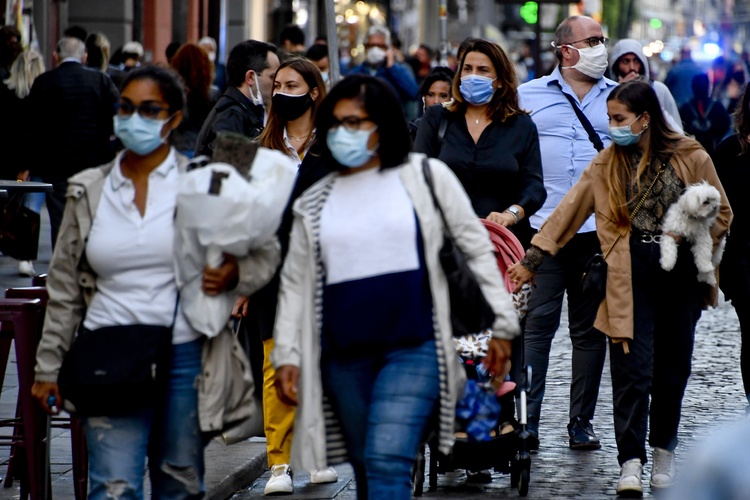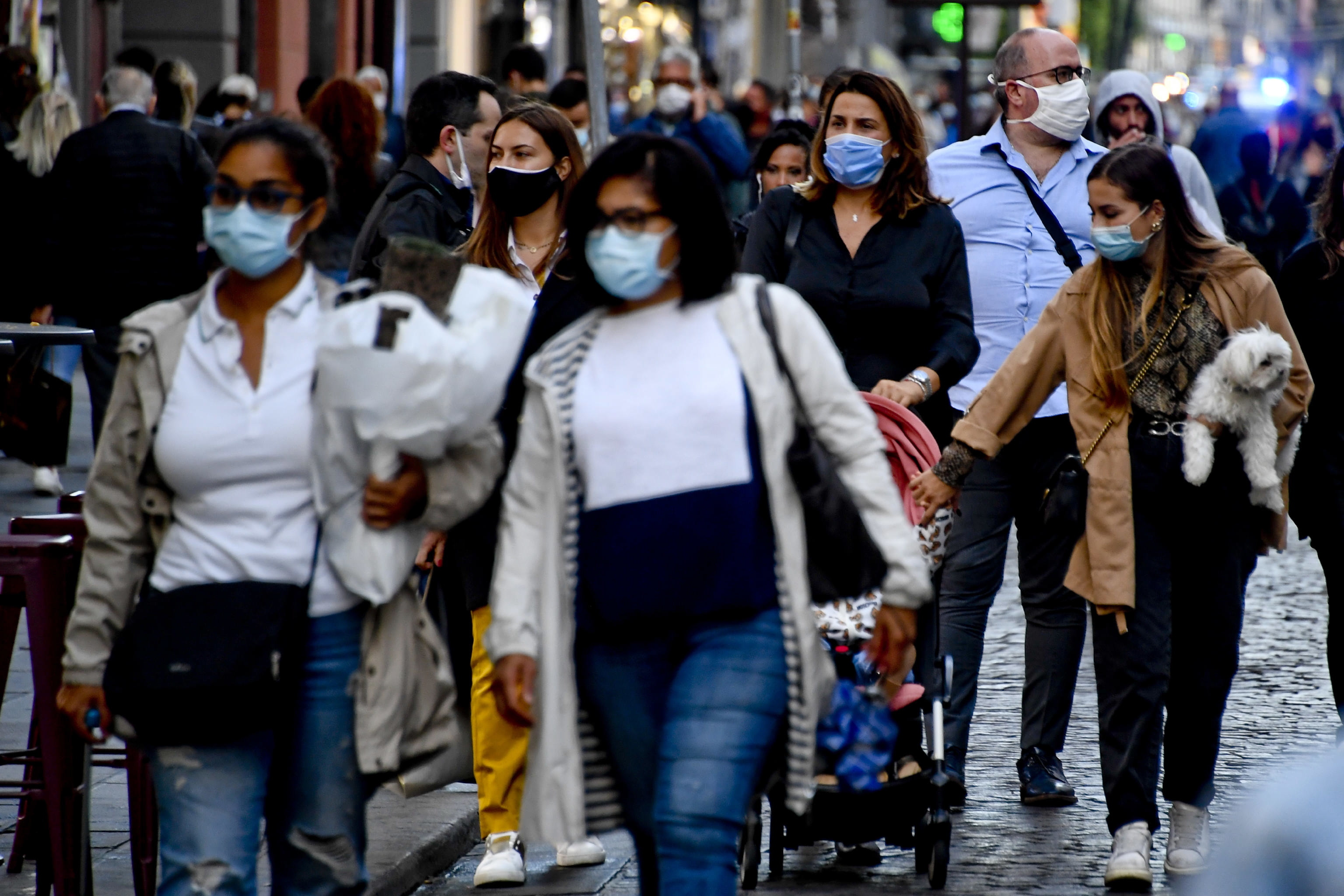The government has also raised the fines for refusing to wear a mask to between €400 and €1000, with police patrols deployed to check that people are complying.
The new rule – which takes effect on Thursday – comes as Italy scrambles to curb a second wave of the coronavirus, which has killed more than 36,000 people around the country.
The government passed the decree even though Italy’s overall per capita infection rate is currently among the lowest in Europe.
Prime Minister Giuseppe Conte warned that a steady, nine-week rise in infections nationwide demanded new restrictions to prevent closures and shutdowns that would prove devastating for the economy.
“We have to be more rigorous because we want to avoid at all cost more restrictive measures for productive and social activities,” Conte said.
The decree was passed on the same day that Italy added 3678 new infections and 31 victims to its official coronavirus toll, the highest increase in new cases since the peak of the outbreak in April.
Both hard-hit Lombardy and the southern region of Campania recorded more than 500 cases each.
The trend of wearing face masks has taken off in Italy, particularly as new clusters have been identified in southern regions that largely escaped the nation’s first wave of infections.
Several regions had already made wearing face masks outside compulsory at all times in response to local spikes in the number of new coronavirus infections, including Lazio, Campania, Sicily, Calabria, Basilicata, Piedmont and Le Marche.
The new government decree was contained in a measure to extend the state of emergency until January 31.
It requires residents to have masks on them at all times outdoors and wear them if they cannot guarantee that they can remain completely isolated from anyone other than family.
This effectively makes the outdoors wearing of masks obligatory in practically all urban settings.
In addition, masks must now be worn indoors everywhere except private homes, but even at home, Conte urged Italians to keep their distance from relatives, given most new infections are occurring within families.
“The state can’t ask citizens to wear masks in their own homes but we have a strong recommendation for all citizens: even in our families, we have to be careful,” he said.
Exceptions include for outdoor sporting activities, children under six years old and people with health conditions that prevent them from wearing masks.
You’re also allowed to take your mask off when you’re eating or drinking at restaurants and cafés, which are supposed to keep customers at least a metre apart.
Businesses that fail to enforce the rules on their premises can be fined up to €1000 and risk being shut down for up to 30 days.
The government is preparing to introduce a raft of new containment measures, including obligatory tests for travellers arriving from the UK, the Netherlands or Belgium, but on Wednesday put off voting on them until next week since several lawmakers are currently in quarantine and unable to attend.
In the meantime the rest of Italy’s existing measures will remain in place until at least October 15.












